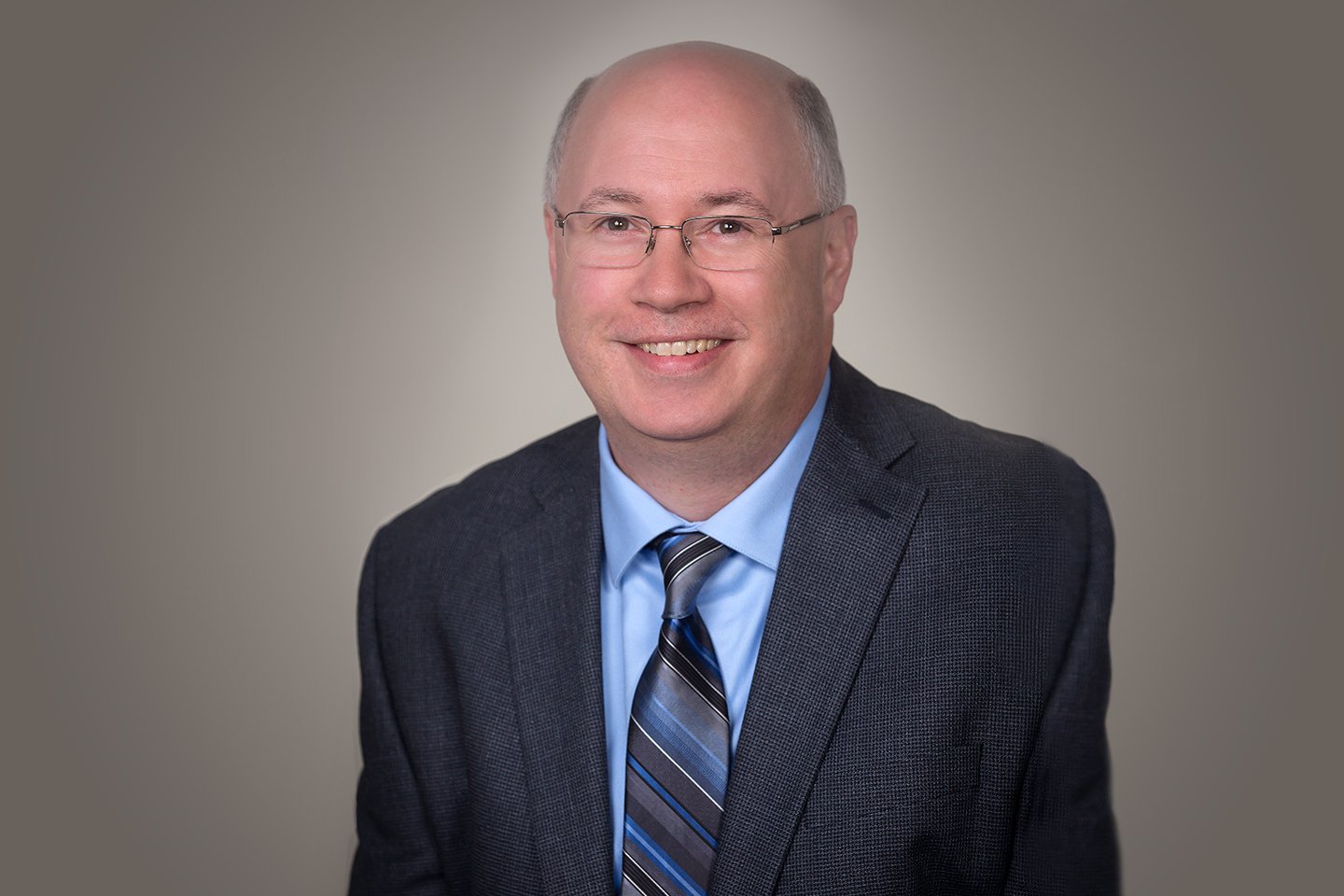
As a way to learn more about the diverse educators who share their expertise with our medical school students, OUWB presents a special interview series called “Take 5.” Let us know what you think.
Paul Megee, Ph.D., is an associate professor of Biomedical Sciences at the Oakland University William Beaumont School of Medicine. Before joining OUWB in September to teach biochemistry and molecular biology, Paul was an associate professor and director of the Biochemistry and Molecular Genetics graduate program at the University of Colorado School of Medicine. He was also a principal investigator of a biomedical research laboratory and instructed medical, graduate, and M.D./Ph.D. students in chromosome morphogenesis and segregation, chromosomal abnormalities, chromatin structure, and cell cycle regulation. Paul’s research focus is to understand the molecular basis of sister chromatid cohesion, which is mediated by a protein complex called cohesin. Mutation of these proteins results in a number of related syndromes in humans, referred to as “cohesinopathies”. Paul is also active with the Cornelia de Lange Syndrome (CdLS) Foundation, a support organization that promotes awareness and early diagnosis of CdLS, a physical and cognitive genetic disorder that presents itself at birth.
Do you recall when you knew you wanted to be a professor of medicine?
I have been interested in life sciences since I was in middle school. Although I wasn’t all that enamored with my other science classes, I was always extremely interested in biology. I suppose my first idea as a kid that I would be involved in biology in some capacity — though when I told people then I probably didn’t get it completely — was when I decided I wanted to be a “genetic engineer”. Genetics was always my first love. It just made intuitive sense to me and I always appreciated it from that respect. I was always interested in how heredity worked and so I think that’s why I was so interested in genetics.
What do you like best about what you do?
I really like thinking about how things work at the molecular level. I like to solve puzzles. I came from a strong research background so I have always been interested in trying to understand how things work at a molecular level and designing experiments that would test new ideas. I have always been enthusiastic about that and I like being able to share that enthusiasm with students. That’s why I‘ve always had a passion for teaching.
Why did you decide to pursue a career as a professor at OUWB?
I was at another medical school before, but my position was mostly as a principal investigator of a biomedical research lab. Although I loved and still love thinking about science and doing experiments and those sorts of things, I didn’t have as much opportunity as I liked to be involved in teaching. That was the main reason I came here, because this job will certainly have a lot more teaching responsibilities than I had previously.
What about the OUWB mission resonated with you?
One of the things that I didn’t necessarily understand as much beforehand as I do now is OU’s approach to identifying students that they feel will be great M.D.s in the future. So their approach to identifying which students to admit has changed my thinking as to what characteristics would be best for our future doctors. OU is very forward thinking and somewhat formative in their approach and I’ve found that to be very interesting.
What is something most people probably don’t know about you?
I’m very interested in soccer so I watch a lot of professional soccer both international and British premiere league soccer…. And I come from Irish ancestry and was exposed to Celtic music from a young age, so I’m also very interested in Celtic music.
You recently relocated to Michigan. How do you like your new setting?
I like it very much. The setting reminds me a lot of Charlottesville, Va., where I went to graduate school. One thing I’m enjoying is the colors from autumn. In Denver we had a lot of yellows from the aspen trees, but not a lot of oranges and reds. Seeing the more vibrant colors reminds me of my childhood in Delaware.
Is there anything else you’d like to say to the OU community before we go?
I’d like to thank everyone that I’ve met here. They’ve been very welcoming and it seems like a nice environment. I’m happy to be here.

